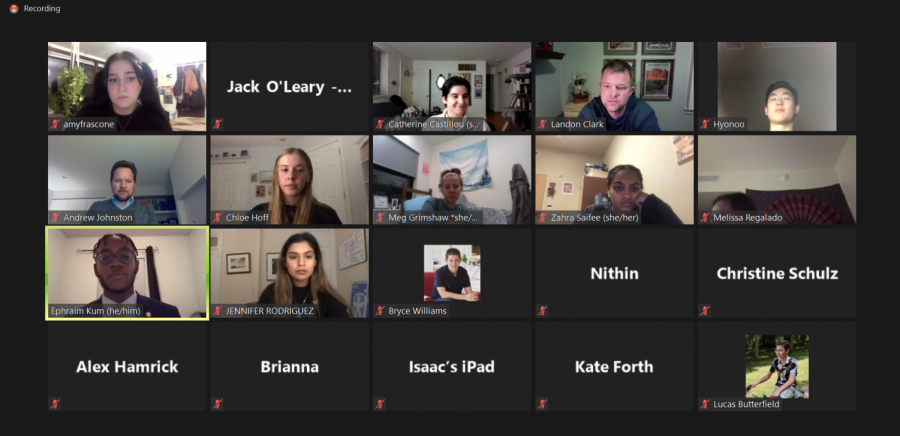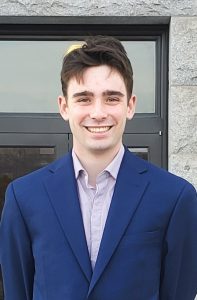Government and Policy: How Three Local Leaders Serve Their Communities
January 28, 2021
On Jan. 27, the Bennion Center held an online forum focused on government and policy featuring three local government leaders as panelists. Salt Lake City Council Member Andrew Johnston for District Two, Sugar House Community Council (SHCC) Chair Landon Clark, and ASUU President Ephraim Kum fielded questions from moderators about how to make a change in government policy as well as how to evaluate one’s impact as a community leader.
A common theme among the three panelists was that getting into government was not a primary goal, rather, it came as a secondary effect of helping their communities and neighborhoods.
“I read a lot and I was just interested in knowing what’s going on. I don’t think I ever planned on running for public office to be honest with you, but I did want to be involved,” Johnston said.
Johnston is a licensed social worker and before being elected to the city council in 2016, he worked with his local community council in the Poplar Grove neighborhood.
“There’s a lot of people in need right now. And so you’ll see some obvious stuff during the pandemic about basic needs like your housing, rental assistance or mortgage assistance, digital equity for students who have to be at home,” he said.
According to Johnston, addressing these needs can be frustrating due to the various levels of local, state, and federal government that are involved with policymaking. Adding to the frustration is also negative feedback from residents who do not agree with the solutions.
“I think we got to find ways to still be able to communicate, regardless of where on the spectrum you are,” Johnston said.
Landon Clark was appointed Chair of the volunteer group in SHCC in 2016, after being involved with his children’s school and wanting to help with the community because of events happening close to home.
“We’re a volunteer-led Community Council, one of 26 in Salt Lake City. We kind of view our role as a conduit from the city…to the community that we represent. We try to be good stewards of the community knowing full well we can’t please everybody,” Clark said.
Recently, the council helped work towards getting the first affordable housing unit built in Sugar House, which is set to break ground next fall. According to Clark, it was hard to do because developers make less profit-building them, but nevertheless is still something the neighborhood needs more of and is something the council will continue to push for.
“Everything that’s been done in Sugar House has come through the community council at one time or the other. Some people don’t like the changes that are happening, but some people are really proud of what’s been going on,” Clark said.
Kum was elected as ASUU President last spring and also serves as the sole student representative to the University Board of Trustees. He was drawn into government by a need to help others.
“It just always stemmed from two things that I knew to be true. One, that life is short and two, I noticed I like helping people and I like helping to solve issues,” Kum said.
Kum said being able to influence policy and listening to those who have entrusted him to get the job done is why he decided to run in the first place. Something he will get to do as the Board of Trustees starts their search for a new University President after Ruth Watkins announced she would be leaving the U this coming April.
“Every decision that kind of happens within the Board of Trustees affects the university and usually affects the university for a long period of time. But this is kind of like an even more compounded decision,” Kum said
Additionally, Kum said by the end of the process he hopes there will be someone who continues the good work Watkins has done and also builds upon the areas where there may be gaps. Kum also stressed the importance of students getting engaged in government policy decisions.
“If you’re interested, please don’t hesitate. Students are some of the most impactful and brilliant activists I have ever seen. It could be community council or student government, something that is close to home and addresses something you care about, ” Kum said.
According to Johnston, there are seven members on the city council and in order to pass any legislation. at least four members need to be in agreement.
“If we’re gonna live in a multicultural society with all of us having a place at the table, we’re gonna have to figure out how to compromise and come to some agreement about how to unify ourselves and work towards a more perfect union, so to speak,” Johnston said.








